Latin American and Caribbean Studies
Language Resource Center Speaker Series - Daniel Kaufman - Current Challenges in Urban Language Revitalization
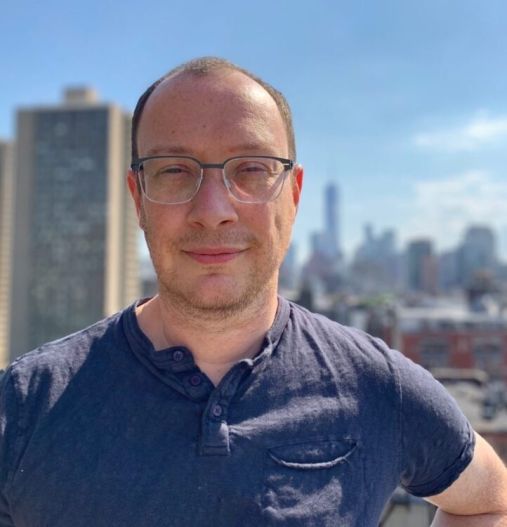
November 14, 2025
12:00 pm
Stimson Hall, G25
"Current Challenges in Urban Language Revitalization"
Daniel Kaufman
Associate Professor of Linguistics, Queens College and the CUNY Graduate Center
In this talk, I discuss the efforts of the Endangered Language Alliance in New York City to document and support several languages of immigrant and indigenous New Yorkers. After a brief overview of the ongoing project, now in its 15th year, to take stock of and map New York City's true linguistic diversity, I focus on two distinct sides in the revitalization of languages in our diaspora setting: one socio-political, and the second, grammatical.
The first challenge is that of creating a space for languages that are not generally heard in public, despite in some cases being spoken by many thousands of people in the city. This is closely tied up with showing younger community members that it is possible to learn their heritage language despite a dearth of materials and resources. The invisibilization of certain languages in the city has been gravely exacerbated by the current political climate, in which immigrants, and especially indigenous migrants from Mexico and Central America, are being forced further into the shadows, as recent enforcement policies have made it amply clear that language and appearance are primary factors in warrantless apprehensions.
To end on a lighter note, the second challenge I discuss relates to teaching highly complex word structure to speakers of English and Spanish, and introduces an online tool that we have developed precisely for this purpose. The tool allows linguists to create a word-building model for any language that translates from a set of basic meanings to a fully formed word while highlighting the function of each affix. This draws inspiration from the "root word method," which has been employed to good effect in the revitalization of Mohawk and other Haudenosaunee languages.
Bio: Daniel Kaufman received a Ph.D. in Linguistics from Cornell in 2010 and prior to that, a B.A. in Linguistics from the University of the Philippines, where he specialized in the Austronesian languages of Island Southeast Asia. He is a founding co-director of the Endangered Language Alliance, a non-profit organization based in New York City, and Associate Professor at Queens College, City University of New York. He has contributed to the understanding of Austronesian language typology and history through a number of publications as well as helping to set a model for language documentation in urban contexts. He is currently involved in computational projects to facilitate the sharing of language documentation materials as well as the formal modeling of phonological, morphological, and syntactic systems.
This event will be held in person in G25 Stimson and will also be streamed live over Zoom (registration required). Join us at the LRC or on Zoom.
The event is free and open to the public.
The event is co-sponsored by the Department of Linguistics.
Additional Information
Program
Einaudi Center for International Studies
Latin American and Caribbean Studies
Information Session: Laidlaw Scholars Leadership & Research Program

October 29, 2025
5:00 pm
The Laidlaw Scholars Leadership and Research Program promotes ethical leadership and international research around the world—starting with the passionate leaders and learners found on campuses like Cornell. Open to first- and second-year students, the two-year Laidlaw program provides generous support to carry out internationally focused research, develop leadership skills, engage with community projects overseas, and become part of a global network of like-minded scholars from twenty universities worldwide.
At this session, we'll share more information about the program, including Cornell's cohort-based intercultural community-engaged learning summer experience in Ecuador, and tips for writing a successful application. Applications are due January 12, 2026.
Applicants are also strongly encouraged to attend a Q+A webinar about the summer experience in Ecuador. Q+A webinars are scheduled for November 5 and November 6.
Register here. Can’t attend? Contact programs@einaudi.cornell.edu.
***
The Mario Einaudi Center for International Studies hosts info sessions for graduate and for undergraduate students to learn more about funding opportunities, international travel, research, and internships. View the full calendar of fall semester sessions.
Additional Information
Program
Einaudi Center for International Studies
Reppy Institute for Peace and Conflict Studies
East Asia Program
Southeast Asia Program
Latin American and Caribbean Studies
Institute for African Development
Institute for European Studies
South Asia Program
Migrations Program
The U.S. Has Stepped in with an Extraordinary Bailout of Argentina. Here's What it Means

Lourdes Casanova, LACS
Lourdes Casanova, director of the Emerging Markets Institute at Cornell, commented on Argentina's currency challenges and the limited power of reserves against global trading pressures.
Additional Information
Remembering Debra Castillo
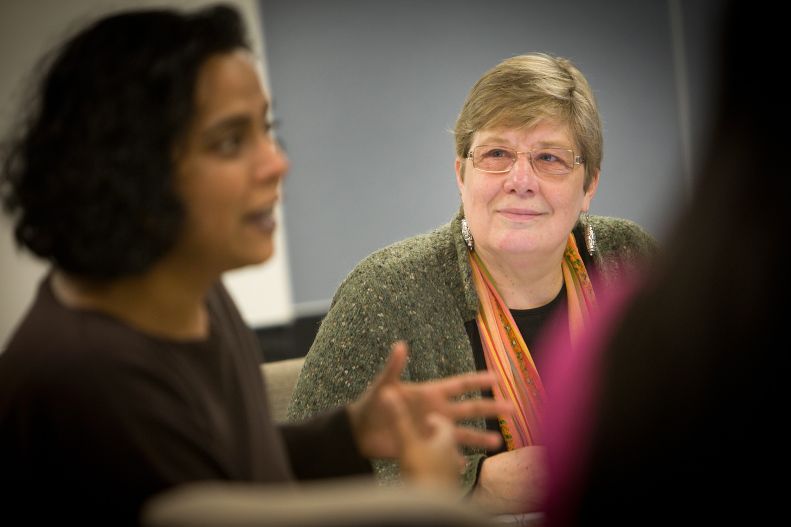
Scholar and Champion of Latinx Students
Debra Castillo (1953–2025) was director of Einaudi's migration studies minor and active in several regional and thematic programs.
Additional Information
Laidlaw Scholars Q+A Webinar with Pachaysana
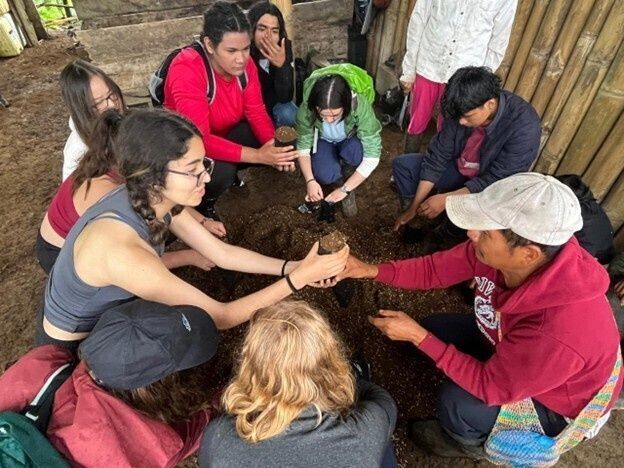
November 6, 2025
5:00 pm
For the summer 2026 Leadership in Action experience, students will be placed with the Pachaysana Foundation exploring what it means to be an intercultural leader in today’s complex, fractured world. Please attend this Q+A webinar with Pachaysana Foundation to learn more about their work and how the Laidlaw Scholars explore leadership as something we live—grown in relationship and rooted in the wisdom of agrarian, Indigenous, and activist communities.
Attendance and participation in the Q+A are highly recommended for Laidlaw Scholars applicants. Applications are due January 12, 2026.
Register here. Can’t attend? Another Q+A webinar is scheduled for November 5.
Contact programs@einaudi.cornell.edu with questions.
***
The Mario Einaudi Center for International Studies hosts info sessions for graduate and for undergraduate students to learn more about funding opportunities, international travel, research, and internships. View the full calendar of fall semester sessions.
Additional Information
Program
Einaudi Center for International Studies
Reppy Institute for Peace and Conflict Studies
East Asia Program
Southeast Asia Program
Latin American and Caribbean Studies
Institute for African Development
Institute for European Studies
South Asia Program
Migrations Program
Karen Jaime, "Digital Poetics: HIDVL and Queer Nuyorican Performance"
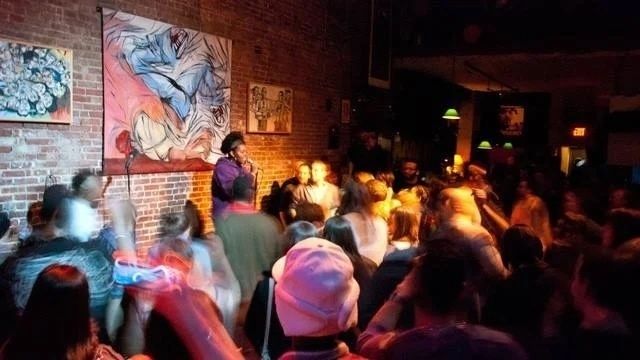
October 24, 2025
12:00 pm
Olin Library, 703
Please join us for an event in our Digital Humanities Initiative Colloquium Series: a presentation by and conversation with Karen Jaime, Associate Professor of Performing and Media Arts and Latina/o Studies at Cornell. Professor Jaime's talk will focus on the Hemispheric Institute Digital Video Library (HIDVL), the first major digital video library of performance practices in the Americas, and queer Nuyorican performance and poetry.
Lunch will be served! All are welcome.
Additional Information
Program
Einaudi Center for International Studies
Latin American and Caribbean Studies
Laidlaw Scholars Q+A Webinar with Pachaysana
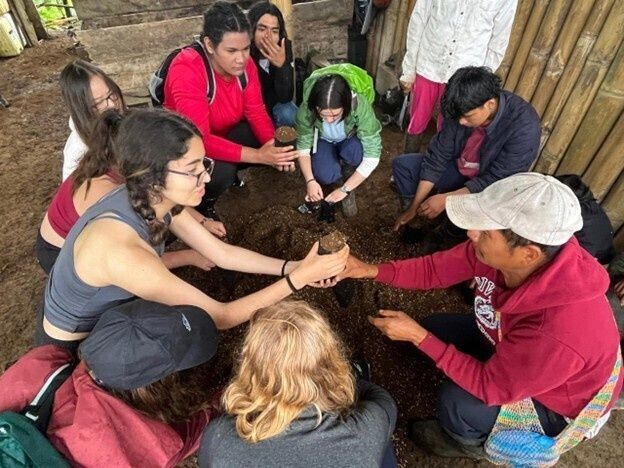
November 5, 2025
12:00 pm
For the summer 2026 Leadership in Action experience, students will be placed with the Pachaysana Foundation exploring what it means to be an intercultural leader in today’s complex, fractured world. Please attend this Q+A webinar with Pachaysana Foundation to learn more about their work and how the Laidlaw Scholars explore leadership as something we live—grown in relationship and rooted in the wisdom of agrarian, Indigenous, and activist communities.
Attendance and participation in the Q+A are highly recommended for Laidlaw Scholars applicants. Applications are due January 12, 2026.
Register here. Can’t attend? Another Q+A webinar is scheduled for November 6.
Contact programs@einaudi.cornell.edu with questions.
***
The Mario Einaudi Center for International Studies hosts info sessions for graduate and for undergraduate students to learn more about funding opportunities, international travel, research, and internships. View the full calendar of fall semester sessions.
Additional Information
Program
Einaudi Center for International Studies
Reppy Institute for Peace and Conflict Studies
East Asia Program
Southeast Asia Program
Latin American and Caribbean Studies
Institute for African Development
Institute for European Studies
South Asia Program
Migrations Program
Democratic Leadership in a New World: Costa Rica’s Former President Laura Chinchilla in Conversation
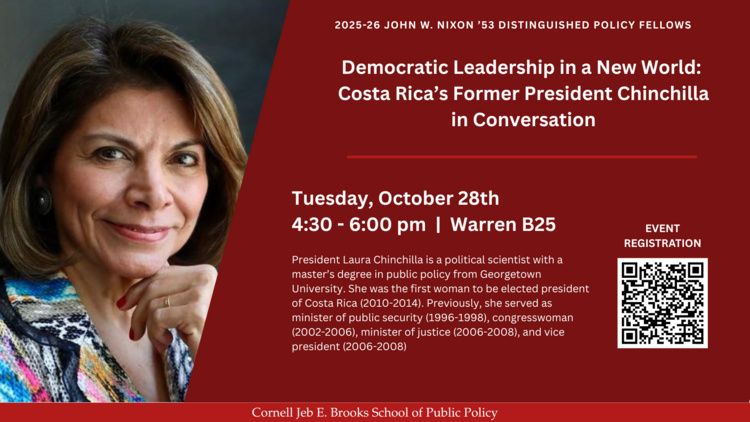
October 28, 2025
4:30 pm
Warren Hall, B25
You are warmly invited to join us for a special event with President Laura Chinchilla, 2025-2026 John W. Nixon ’53 Distinguished Policy Fellow, in conversation with Professor Rachel Riedl, Peggy J. Koenig ’78 Director of the Center on Global Democracy, and Zarifa Ghafari, Human Rights Activist, former Afghan mayor, and Cornell MPA ’26.
Event registration: Please scan the QR code on the attached flyer or register via this link.
We hope you will join us for this timely and engaging conversation.
Additional Information
Program
Einaudi Center for International Studies
Latin American and Caribbean Studies
Pedro M. R. Barbosa

LACS Visiting Scholar
Pedro M. R. Barbosa is researcher on public policy, comparative late welfare states, political economy, and the politics of redistribution. He studied the transformations and politics of late welfare states, which led to a number of publications (Barbosa, 2024; Camargo; Barbosa, 2024; Barbosa, 2023; Barbosa et al, 2023; S'atyro et al, 2019) in addition to his dissertation.
Recently, he has focused on the political polarization in Latin America (Tanscheit; Barbosa, 2023) and the politics of redistribution (Barbosa, 2023).
Additional Information
How Communities Can Bridge the Digital Divide

Mildred Warner, IES/LACS
A new book highlights innovative state and local approaches to eliminating “digital deserts,” which persist despite billions in federal subsides promoting universal access.
